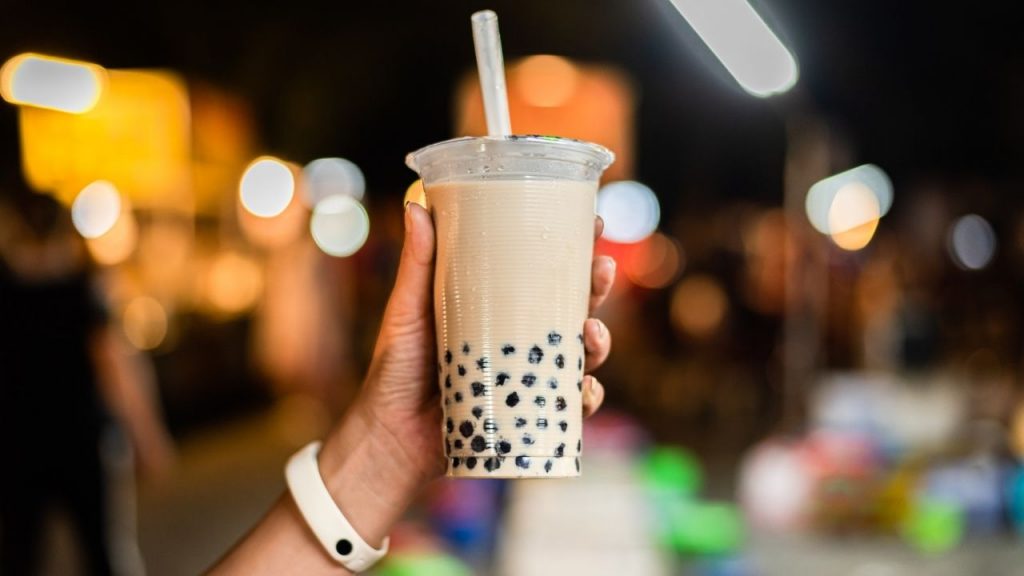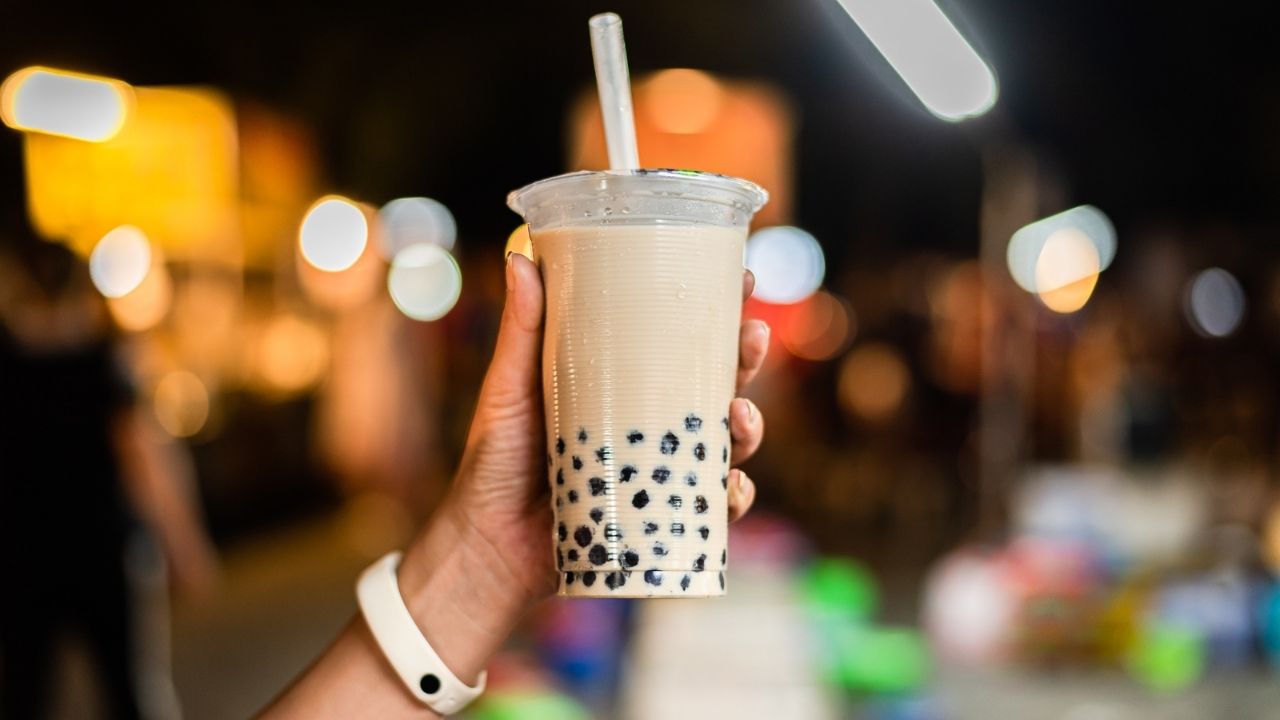Do you stay updated with the trends or viral things going around? Then surely you are also aware of Bubble tea and its viral trends around the world.
However, conspiracy debates are going on whether this drink is caffeine-free and healthy to have or not. Especially, parents are concerned about the fact of whether bubble tea is safe for underage kids or not. Therefore, we have decided to cover up this topic so that you can easily answer questions like- Does bubble tea have caffeine in it? Or, what is the point of bubble tea?
About Bubble or Boba Tea
Bubble tea is an incredibly unique looking beverage invented in a Taiwanese recipe. And eventually, it got viral worldwide. As a result, it’s one of the most common drinks in other Asian and Western countries like the U.K, USA, Canada.
The ingredients in a typical bubble tea drink include tea (tea bag or loose-leaf), dairy or creamer, a sweetener, and tapioca pearls and usually made by blending a tea base with milk, fruit, and fruit juices, then adding the signature topping of tapioca pearls at the bottom and are made of the cassava root’s starches.
Does All Bubble Tea Have Caffeine?
If we have to answer it in short, then yes. But for your better understanding, we are breaking down the types of tea and their caffeine-containing percentages herewith-
Black Tea:
Black tea enhances the drink with a robust tea flavor that pairs well with everything else in the drink and contains roughly 40-50mg of caffeine
Jesmin Tea:
It is another commonly used tea ingredient that has a comparing lower amount of caffeine, around 20-30mg of caffeine.
Oolong Tea:
Oolong tea is also low in caffeine and made of leaves, buds, and stems of the Camellia sinensis plant. In general, oolong tea contains 25-35mg of caffeine.
Green Tea:
Green tea, also known as Green Macha tea, has a lighter taste and generally contains 20-30mg of caffeine. But it’s more like the slow-acting caffeine effect.
Related Article: What Type of Coffee has the most Caffeine
Is There Caffeine-Free Bubble Tea?
Since in recent years, bubble tea has been upgraded into more customized healthy alternatives. Many tea shops offer customized flavor options such as Asian-style smoothies, consisting of a dairy base flavored with fresh fruit, fruit syrup, or fruit powder, and these are also safe for kids teens. These shops offer fruity flavors like watermelon, lemon, honeydew, strawberry, banana, and more.
What Is The Healthiest Bubble Tea?
We know that a calorie and sugar-rich diet is not always good for your cardiovascular health. Now the obvious question that pops is whether there is any healthier option in bubble tea!
Yes. You can choose organic or herbal bubble tea, and instead of sugar, you can ask for honey. Also, Matcha has lots of health benefits so, you can have that with no sugar or honey and fresh organic milk or almond milk, then top it with organic chia seeds instead of tapioca balls.
However, if you want other options, you can choose from Passion Fruit Green Tea, Taro Bubble tea, Lychee Green Tea or Honey Milk Tea etc.
What Happens If You Drink Bubble Tea Every Day?

Well, we all know every single thing has two sides of its good side and bad side, and bubble tea isn’t exceptional too. Therefore, we have decided to give you both sides of the theory to have a non-biased review.
Positive sides:
Based on the “Institute of Medicine of the National Academies” and “Asia one,” bubble tea can keeps you hydrated and give an energy boost too. Therefore, a large bubble teacup can give the energy booster that we needed in the morning and keep us hydrated. People who are searching for better refreshingly tasty options can easily move into this tea.
“Healthline” research experts also suggested that drinking bubble tea every day can boost our metabolism, melt belly fat, fight off diseases, even lessen the risk of stroke and cardiovascular disease.
We also know that tapioca pearls are made of resistant starches, and experts suggest that these can regulate the gut microbiota, the veritable home for bacteria in your digestive tract based on “Cellular Physiology and Biochemistry” reports.
Negative sides:
The U.S. Department of Agriculture research reports that most bubble tea drinks boast little in vitamins, nutrients, and fiber and lack fulfilling the body’s nutrients needs.
According to Diabetes Care’s report published in 2010, every day, taking a sweetened drink or beverage can increase the risk of having type two diabetes. “Harvard University” reports daily drinking beverages with high sugar content could significantly raise the risk of getting heart disease, and even it can causes dying from a heart attack too.
Another thing is that the tapioca pearls are high in carb and low on nutrients. They’re worse when they’re boiled in sugar because this can cause your skin pores to clog. Regular drinkers of boba often suffer from skin problems.
Above, We have briefly explained, How does bubble tea affect your health?
Now, it is your choice to decide whether to make it an everyday habit or not.
FAQs
Conclusion
In today’s article, we have tried to cover up all relevant bubble tea details to answer questions like does bubble tea have caffeine in it more precisely. Therefore, let us know how satisfied you are with the information we have provided here.

